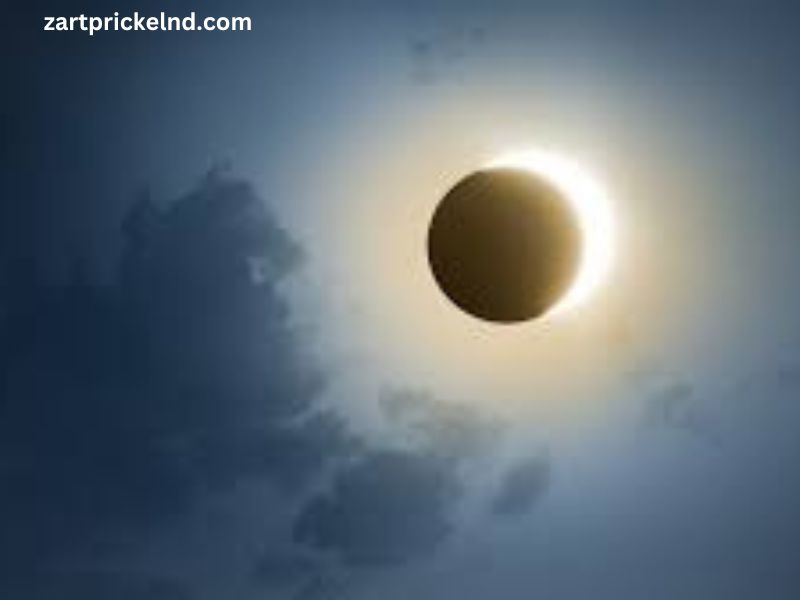Eclipses are some of nature’s most breathtaking spectacles, drawing crowds of eager onlookers who wish to witness the sun and moon dance across the sky. For residents of Chicago, the excitement surrounding an upcoming eclipse can lead to many questions, especially regarding the timing and best viewing practices. In this article, we’ll explore the details of the next eclipse, its timing in Chicago, and how to make the most of this celestial event.
Understanding Eclipses
Before diving into specifics, it’s essential to understand what an eclipse is. A solar eclipse occurs when the moon passes between the Earth and the sun, blocking all or part of the sun’s light. A lunar eclipse happens when the Earth is positioned between the sun and the moon, causing the Earth’s shadow to fall on the moon. There are different types of solar eclipses: total, partial, and annular, each offering a unique viewing experience.
Upcoming Eclipse in Chicago
The next significant solar eclipse to be observed in Chicago will occur on April 8, 2024. This event is particularly noteworthy as it will be a total solar eclipse, meaning that the moon will completely cover the sun for a brief period. The path of totality, where the total eclipse can be observed, will cross several parts of the United States, including a swath through Illinois.
Timing of the Eclipse in Chicago
On April 8, 2024, the eclipse will unfold in several stages. Here’s the schedule for Chicago:
- Start of Partial Eclipse: Approximately 1:58 PM CDT
- Start of Total Eclipse: Approximately 3:01 PM CDT
- Maximum Eclipse: Approximately 3:03 PM CDT
- End of Total Eclipse: Approximately 3:05 PM CDT
- End of Partial Eclipse: Approximately 4:20 PM CDT
These times can vary slightly based on your specific location within Chicago, so it’s a good idea to check a reliable astronomical source closer to the date.
What to Expect During the Eclipse
As the eclipse approaches, there will be a gradual dimming of light. This can create a surreal atmosphere as the sun appears to be slowly obscured by the moon.
During the totality phase, when the moon completely covers the sun, the sky will darken, and stars may become visible. Temperatures may drop slightly, and you might notice changes in animal behavior, as many animals react to the sudden shift in light.
Safety Precautions
Viewing an eclipse can be thrilling, but safety is paramount. Looking directly at the sun during a solar eclipse can cause severe eye damage. Here are some safety tips for observing the eclipse:
- Eclipse Glasses: Use certified eclipse glasses that meet the ISO 12312-2 international safety standard. Regular sunglasses are not safe for viewing the sun.
- Pinhole Projectors: You can create a simple pinhole projector to view the eclipse indirectly. This can be as simple as using a piece of cardboard with a small hole.
- Solar Filters for Telescopes and Binoculars: If you’re using telescopes or binoculars, ensure they have solar filters specifically designed for safe solar viewing.
- Avoid Looking Directly at the Sun: Only during the brief period of totality, when the sun is completely covered, is it safe to look directly at the eclipse. Be prepared to cover your eyes as soon as the totality ends.
Preparing for the Eclipse
To fully enjoy the eclipse, consider the following preparation steps:
- Location: Find a suitable location with a clear view of the sky. Parks, rooftops, or open fields away from tall buildings and trees are ideal.
- Timing: Arrive at your chosen location early to avoid crowds and ensure a good spot.
- Weather Considerations: Monitor the weather forecast leading up to the event. Cloud cover can obstruct your view, so have a backup location in mind.
- Photography: If you plan to take photos, practice beforehand and use appropriate solar filters for your camera. Consider setting up a tripod to capture stable images.
- Share the Experience: Gather friends and family to share the experience. Eclipses can be more enjoyable when shared with others.
Historical Context
Eclipses have fascinated humans for millennia. Ancient civilizations often viewed them as omens or messages from the gods. For example, the Babylonians tracked eclipses and predicted them with impressive accuracy, while the Maya incorporated eclipses into their calendrical systems.
In modern times, eclipses have become opportunities for scientific study. The total solar eclipse of 1919, for example, provided crucial evidence for Albert Einstein’s theory of general relativity, as scientists were able to observe the bending of light around the sun.
Conclusion
The total solar eclipse on April 8, 2024, is a remarkable event for Chicagoans and will be one of the most significant astronomical occurrences of the year. By knowing the timing, understanding the necessary safety precautions, and preparing adequately, you can ensure that you experience this awe-inspiring event to its fullest.
Mark your calendars, gather your eclipse glasses, and get ready for an unforgettable day as the moon casts its shadow across the city, reminding us of the wonders of the universe. Whether you’re an astronomy enthusiast or simply curious about the world above, witnessing an eclipse is an experience that connects us all to the cosmic dance of celestial bodies.



